A sore throat is a feeling of burning, scratching, difficulty swallowing, or dryness. A sore throat usually results from inflammation of the throat mucosa caused by viruses or bacteria. It indicates a throat infection that causes painful symptoms.
In addition, causes can include injury, retention of a foreign body in the throat or esophagus, exposure to irritants, and even cancer. However, it is a common and rarely dangerous ailment, the risk of which increases during the autumn and winter.
In the case of infection, a sore throat is often accompanied by additional symptoms such as fever and cough. Sore throat is a sign that can have various degrees of severity and can sometimes be troublesome. Patients of each age can complain of it. It can have an acute or chronic type. Most cases of pharyngitis of viral and bacterial etiology resolve spontaneously. However, various treatments can reduce the pain and make you feel better. Find out the best ways to treat a sore throat – Sore Throat Remedies.

Sore throat is a common and frequent symptom, so many patients try to deal with it independently. If the cause of the sore throat is harmless, you can reduce the intensity of the symptoms with Sore throat remedies. Many products positively affect the irritated mucous membrane of the throat without causing any side effects. See what to try to reduce a sore throat. These ways are often safe for children, too. The safe use of sore throat remedies helps to reduce the misuse of antibiotics. Before you start pharmacotherapy, you can push the following sore throat remedies.
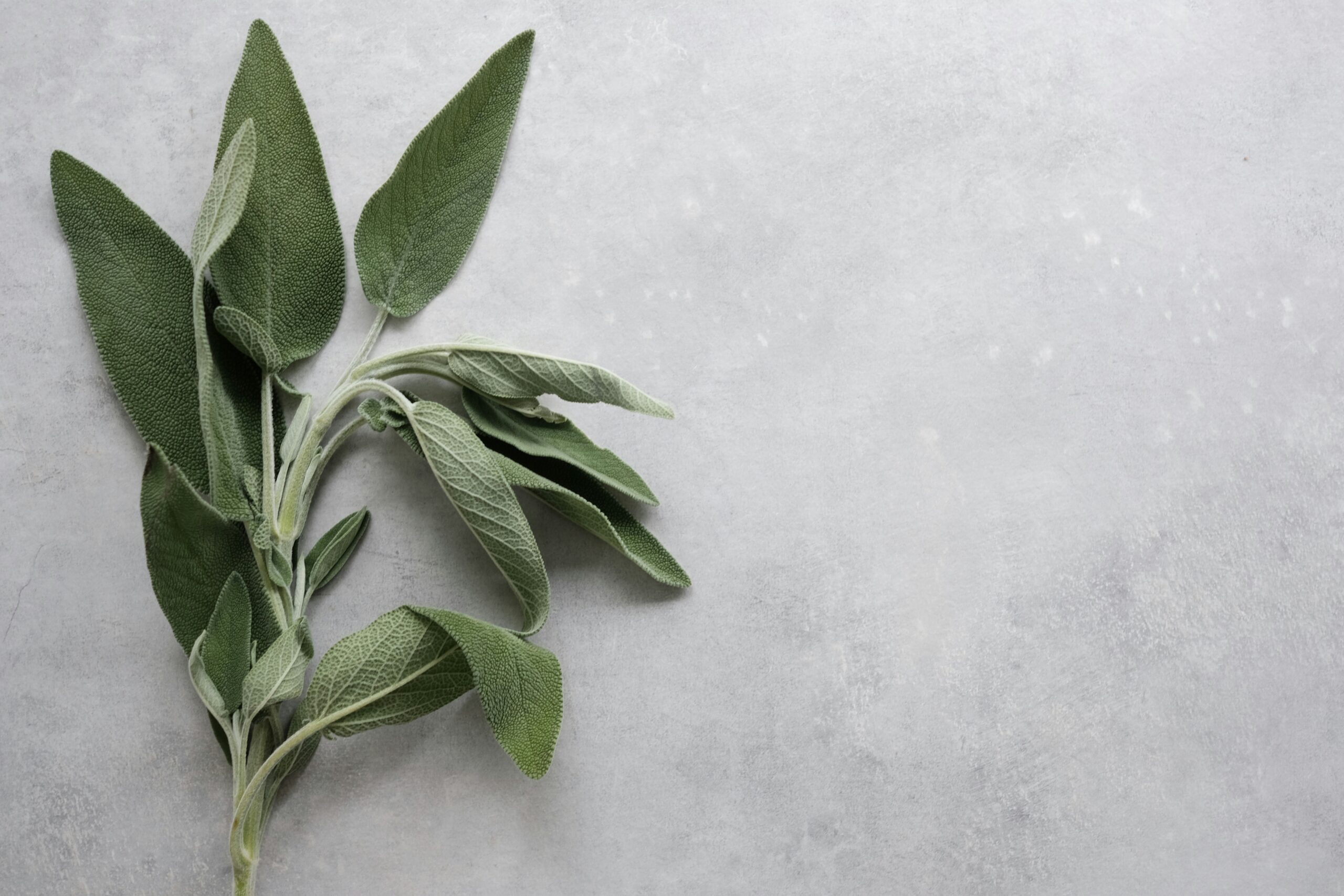
Herbal medicine has become an increasingly popular form of therapy. More and more medicines are of plant origin. It has been known for years that some herbs have remarkable properties that help with various conditions. This is also the case with sore throats. Sage is one of the most popular and useful medicinal herbs. Its beneficial properties are especially appreciated in the fight against the common cold. You can prepare an infusion based on this plant.
Sage leaves have antibacterial, antifungal, anti-inflammatory, and antiseptic effects, so they are often used for inflammation in the mouth. There are phenolic compounds![]() in sage, which have unique antioxidant and free radical-fighting properties. It helps sage protect against bacterial and viral infections. Sage relieves inflammation, has an expectorant effect, and helps eliminate phlegm lingering in the throat. Its effectiveness is very high. You can gargle with cooled sage infusion.
in sage, which have unique antioxidant and free radical-fighting properties. It helps sage protect against bacterial and viral infections. Sage relieves inflammation, has an expectorant effect, and helps eliminate phlegm lingering in the throat. Its effectiveness is very high. You can gargle with cooled sage infusion.
Contraindications: However, pregnant women should be cautious because sage can have an abortive effect. Therefore, pregnant women should not drink sage infusions.
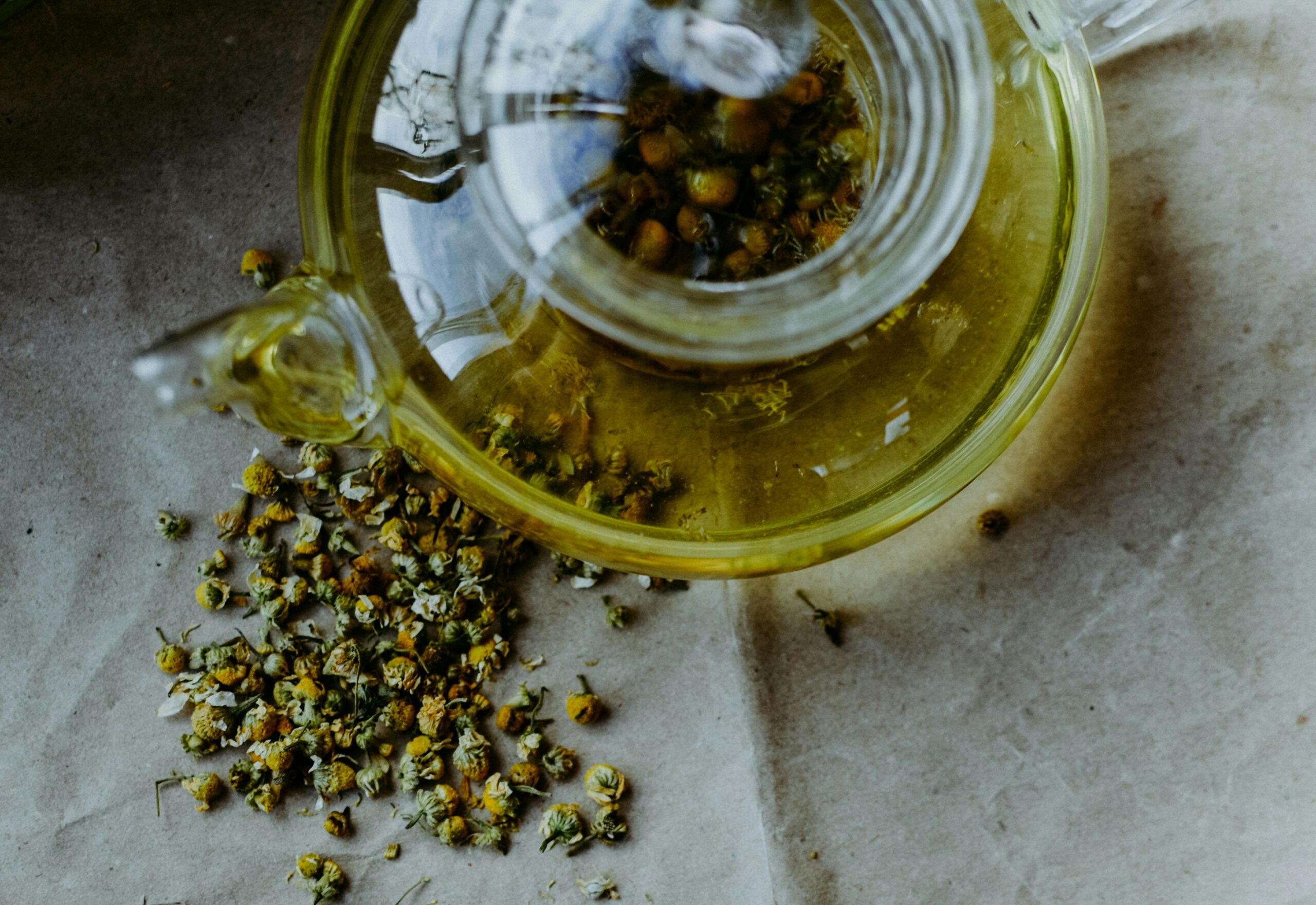
With a wide range of applications in the medical field, cosmetology and pharmacy, chamomile is one of the most widely used medicinal plants in the world. Chamomile has numerous medicinal properties known since ancient times and confirmed by scientific research. It is also one of the sore throat remedies. Chamomile is used as an external and oral anti-inflammatory agent. The flowers of chamomile contain volatile oils, flavonoids, luteolin![]() , and more bioactive ingredients.
, and more bioactive ingredients.
Dried chamomile flowers contain terpenoids and flavonoids responsible for their medicinal properties. An infusion of the medicinal plant is used in gargles for inflammation and mild ulcers of the throat and mouth mucous membranes, formed after dental procedures or accompanying a cold. You can also reduce sore throat and cold symptoms by inhaling an infusion of chamomile.
Contraindications: Chamomile is not toxic to human health. Its use is jets epicene for everyone. However, in sporadic cases, an allergic reaction may occur.

In addition to being an aromatic herb highly valued in cooking, thyme has been used as a medicinal plant since ancient times. One of the most well-known uses of this plant is related to common respiratory problems such as the common cold and flu. The herb mostly contains the health-promoting ingredients – volatile oils![]() .
.
Thyme has antitussive and antispasmodic properties that soothe irritation of the respiratory tract. It also has expectorant properties, as it helps expel mucus and phlegm. It is then worth drinking it in the type of infusion. Thyme also has antibacterial and anti-inflammatory properties. Thyme tea can provide relief from sore throats. Dried thyme drenched in boiling water is an ideal infusion for sore throats, and it will help you reduce painful symptoms.
Contraindications: Despite its numerous health properties, thyme can harm some people. In particular, it is recommended to avoid excessive consumption of this herb in people with digestive problems and heart disease. Also, beware of allergic reactions. It should be avoided during pregnancy due to its abortifacient effect.

Peppermint is another wonder herb with antibacterial, antiviral, and cough-suppressant properties. Mint tea contains anti-inflammatory compounds and has a soothing effect on the throat. Peppermint can also lightly anesthetize the throat, thus relieving pain.
Peppermint tea is caffeine free and its naturally sweet taste is often without the need for added sweeteners. The medicinal properties of mint are due to its menthol![]() content. Menthol can help with the scratching, burning, and itching of an irritated throat. Thus, mint helps clear the airways and is very helpful in treating a sore throat.
content. Menthol can help with the scratching, burning, and itching of an irritated throat. Thus, mint helps clear the airways and is very helpful in treating a sore throat.
Contraindications: Do not use mint if you are hypersensitive to products containing mint leaves, oil, and menthol. If you suffer from gastroesophageal reflux, hiatal hernia, and kidney stones, be cautious when using mint infusions. It is permissible to drink mint infusions during pregnancy. Studies have shown that peppermint used by pregnant women does not pose a health risk to the baby or the mother.
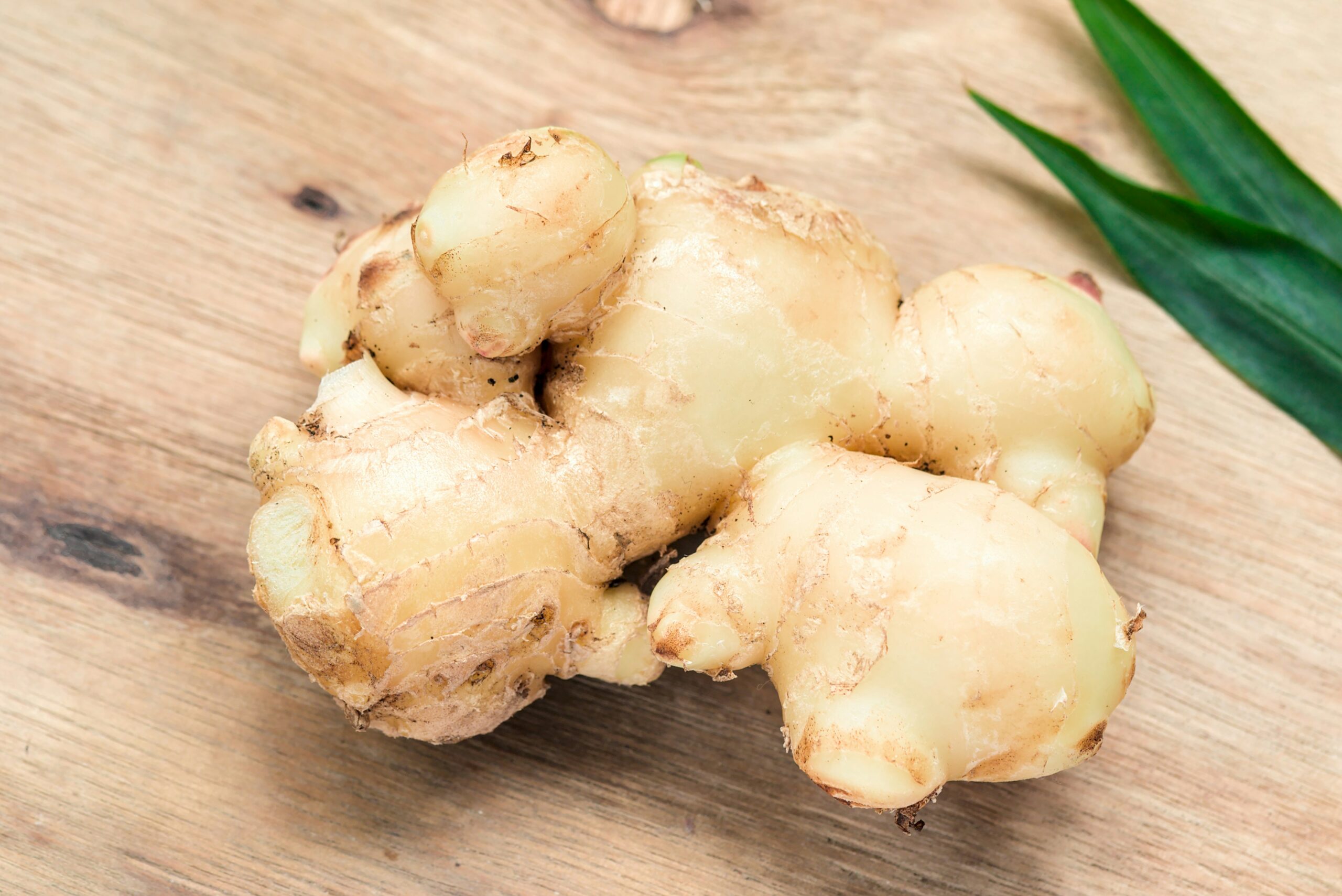
Ginger root contains a mixture of biologically active compounds that have medicinal properties. Gingerol![]() , a phenolic phytochemical compound, is responsible for the health effects of fresh ginger on the body. Its antibacterial and anti-inflammatory properties mean that ginger can be successfully used to help treat the common cold and flu.
, a phenolic phytochemical compound, is responsible for the health effects of fresh ginger on the body. Its antibacterial and anti-inflammatory properties mean that ginger can be successfully used to help treat the common cold and flu.
An infusion of ginger is recommended to drink in case of sore throat. The plant also supports the immune system. Thus, it has many benefits. Boiled ginger infusion is the easiest and fastest way to get a medicinal drink. Just grate the root and pour boiling water over it.
Contraindications: However, ginger is not a safe choice for sore throat. People with gastrointestinal diseases, such as stomach ulcers and reflux disease, should be wary of it. In addition, pregnant women should be cautious, as frequent consumption of large amounts of ginger can increase the risk of fetal development problems.
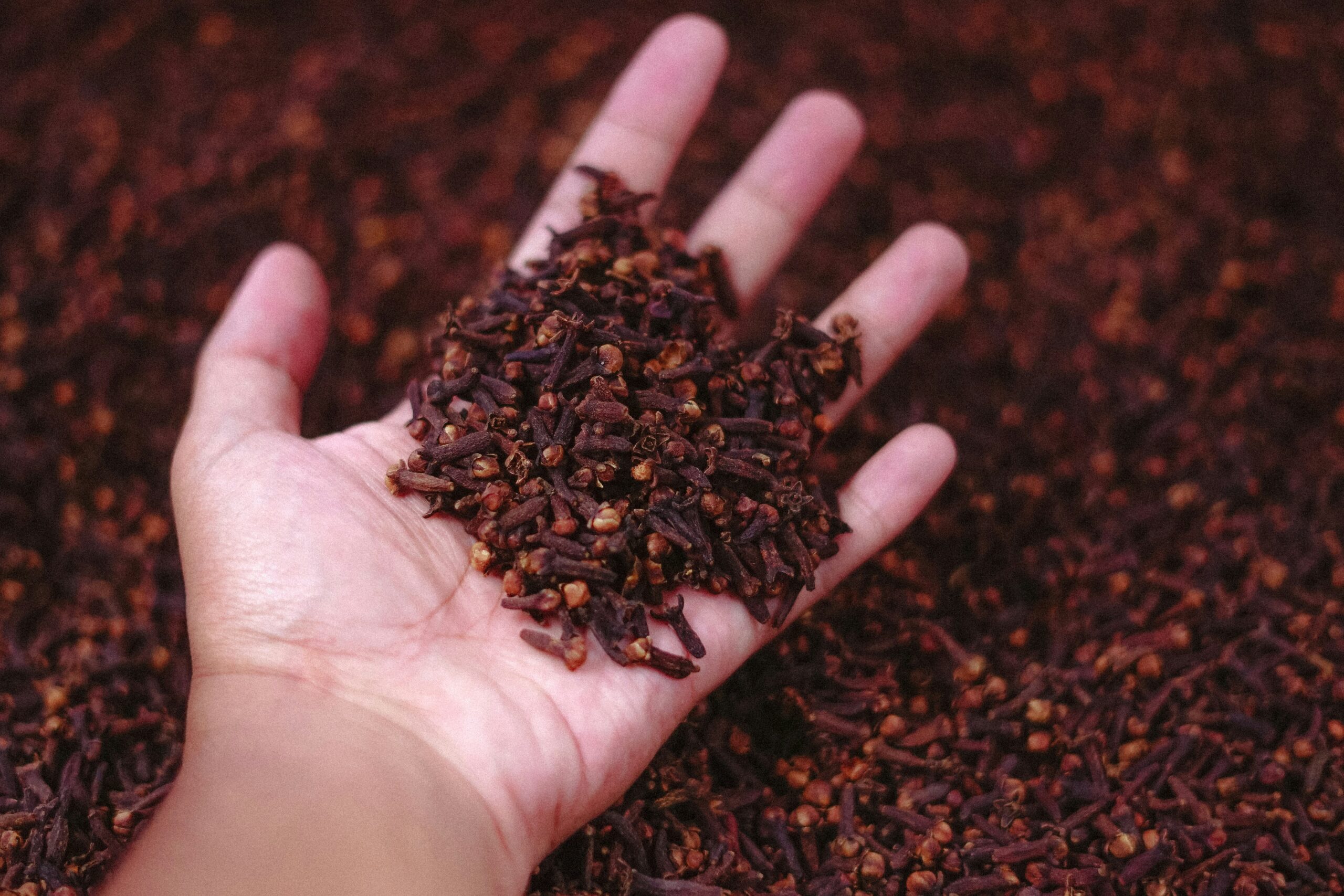
Cloves are one of the world's oldest and most common spices, and their health benefits are widely known and appreciated. Cloves contain many bioactive substances that have antibacterial and anti-inflammatory effects. It is due to this that cloves help in the fight against diseases of the mouth and throat.
Cloves are also known for their analgesic effect. In addition, these plants are rich in antioxidants, which fight free radicals and prevent aging. Due to their content of eugenol![]() , a substance with antiseptic properties, cloves work effectively in treating a sore throat. Sore throat remedies using cloves include using gargles or inhaling clove oil, which can help relieve sore throat symptoms.
, a substance with antiseptic properties, cloves work effectively in treating a sore throat. Sore throat remedies using cloves include using gargles or inhaling clove oil, which can help relieve sore throat symptoms.
Contraindications: The use of cloves as a natural pain reliever may be contraindicated for some people, especially those who have allergies to cloves or have blood clotting problems. For pregnant women, cloves are safe, but clove infusions should not be consumed excessively.
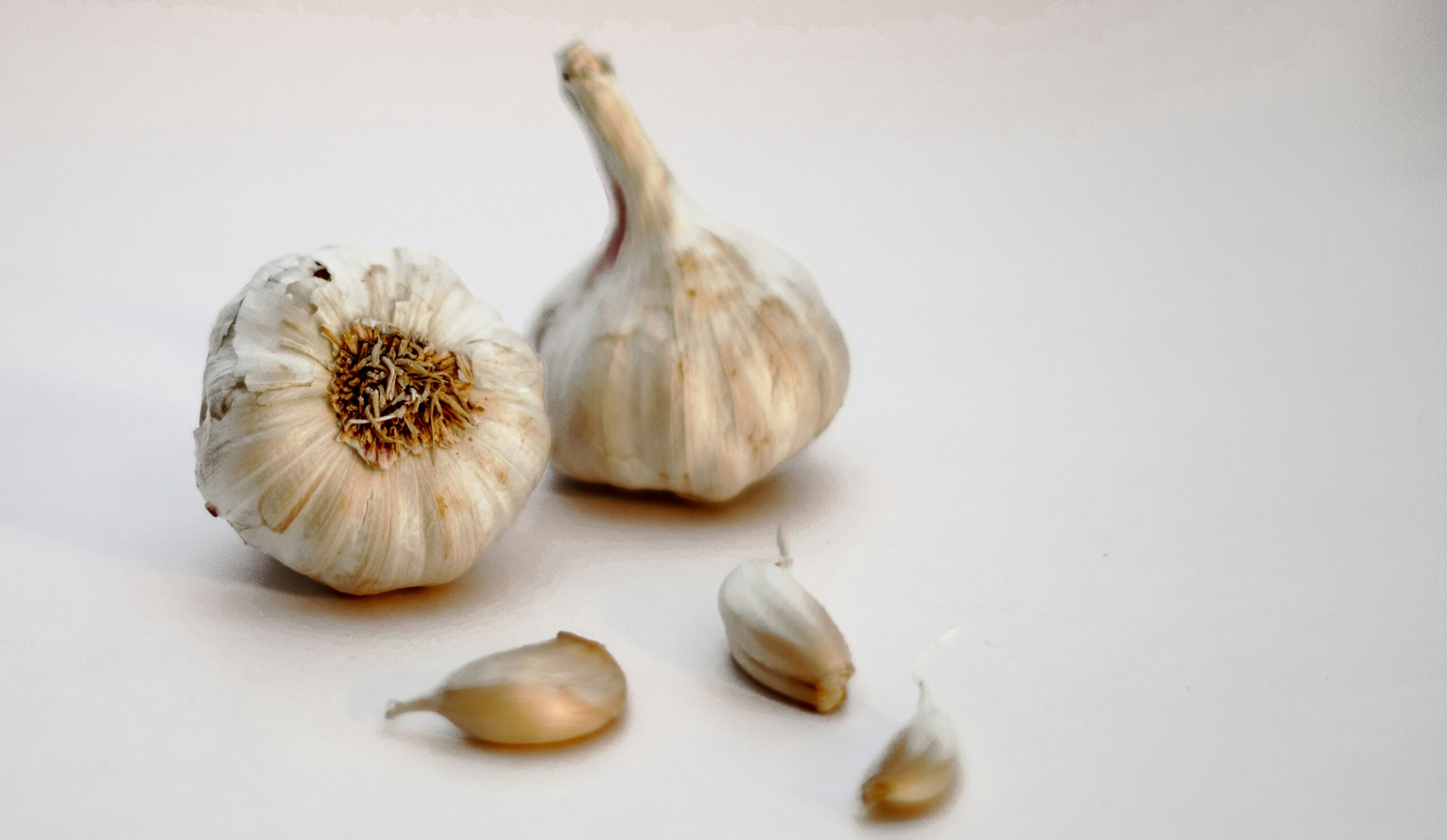
Garlic is used as a medicinal plant and a spice. However, its main asset is undoubtedly its medicinal properties. The sulfur compounds contained in garlic have a bactericidal effect. In addition, the essential oils contained in garlic treat colds and infections.
Garlic also has an antifungal effect and antiseptic properties, so it soothes sore throats. Garlic is best eaten fresh as a side dish. However, for it to work, garlic must be specially prepared. Garlic should be chopped, crushed, or smothered before eating to release the healing enzymes![]() responsible for garlic's health-promoting properties.
responsible for garlic's health-promoting properties.
Contraindications: There are some situations in which eating garlic is not recommended. Most mainly, it is diseases of the digestive system, in which you have to follow an easily digestible diet. Excessive consumption of garlic can cause gastrointestinal complaints. Garlic also belongs to products to which one can be allergic.

Try natural honey-based remedies if you have a sore throat. Honey has been used by people for centuries to remedy various ailments, including a sore throat. Honey has anti-inflammatory actions, which can help reduce inflammation of the throat's mucous membrane. In addition, Honey is hygroscopic![]() , which means it can dehydrate bacteria. Because of it, honey has antibacterial effect that can help fight bacterial infections that can cause a sore throat. In addition, honey acts as a natural pain reliever, easing the discomfort associated with a sore throat.
, which means it can dehydrate bacteria. Because of it, honey has antibacterial effect that can help fight bacterial infections that can cause a sore throat. In addition, honey acts as a natural pain reliever, easing the discomfort associated with a sore throat.
Treatment with honey also helps to reduce dryness in the throat by moistening the mucous membrane and helping to remove purulent secretions. So, the benefits of using honey on the throat are numerous, and it's worth trying this natural remedy. The use of honey for the throat is straightforward. Mix a tablespoon (or more) of honey with warm water or add it to slightly cooled tea.
Contraindications: Remember not to add honey to boiling water or scorching drinks, as the substance loses its healing properties. For pregnant women, including those with sore throats, honey is generally considered safe.
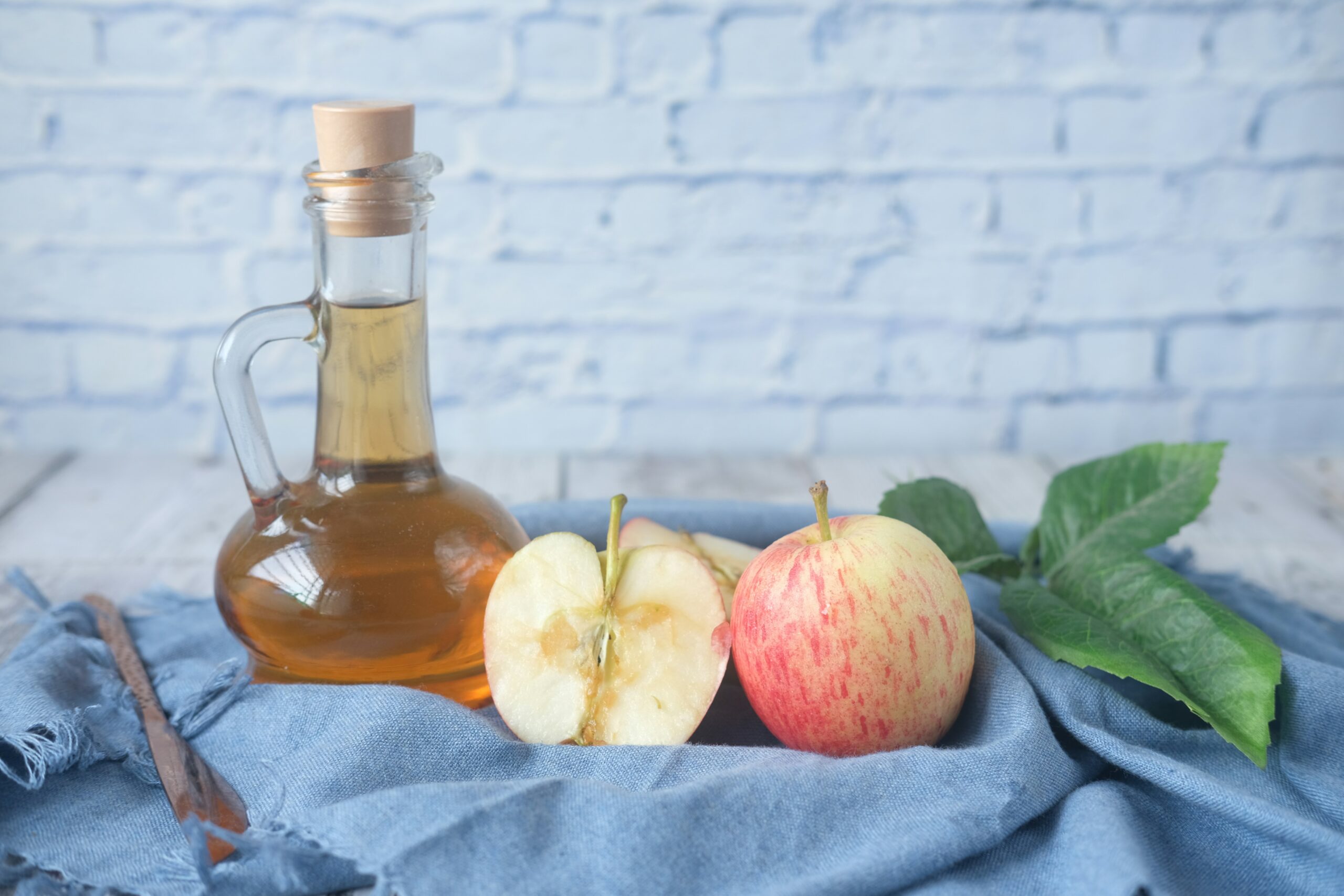
Apple cider vinegar will find several uses. The cleansing properties of apple cider vinegar were used as far back as ancient Egypt. As one of the more popular sore throat remedies, apple cider vinegar will help with a sore throat. Thanks to its rich nutrient content![]() , apple cider vinegar will be a valuable addition to the diet, especially during periods of reduced immunity.
, apple cider vinegar will be a valuable addition to the diet, especially during periods of reduced immunity.
Apple cider vinegar will also help get rid of respiratory secretions faster. If you are experiencing severe pain, slowly gargle with water and apple cider vinegar several times daily. In addition to gargle, use vinegar compresses. Soak a thin cloth or gauze in apple cider vinegar. Place it on your neck or chest.
Contraindications: Apple cider vinegar is recommended by many Sore throat remedies to fight seasonal infection. However, it should not be used by people who suffer from chronic illnesses related to the digestive system, especially the stomach. Nor is drinking apple cider vinegar recommended for pregnant women.
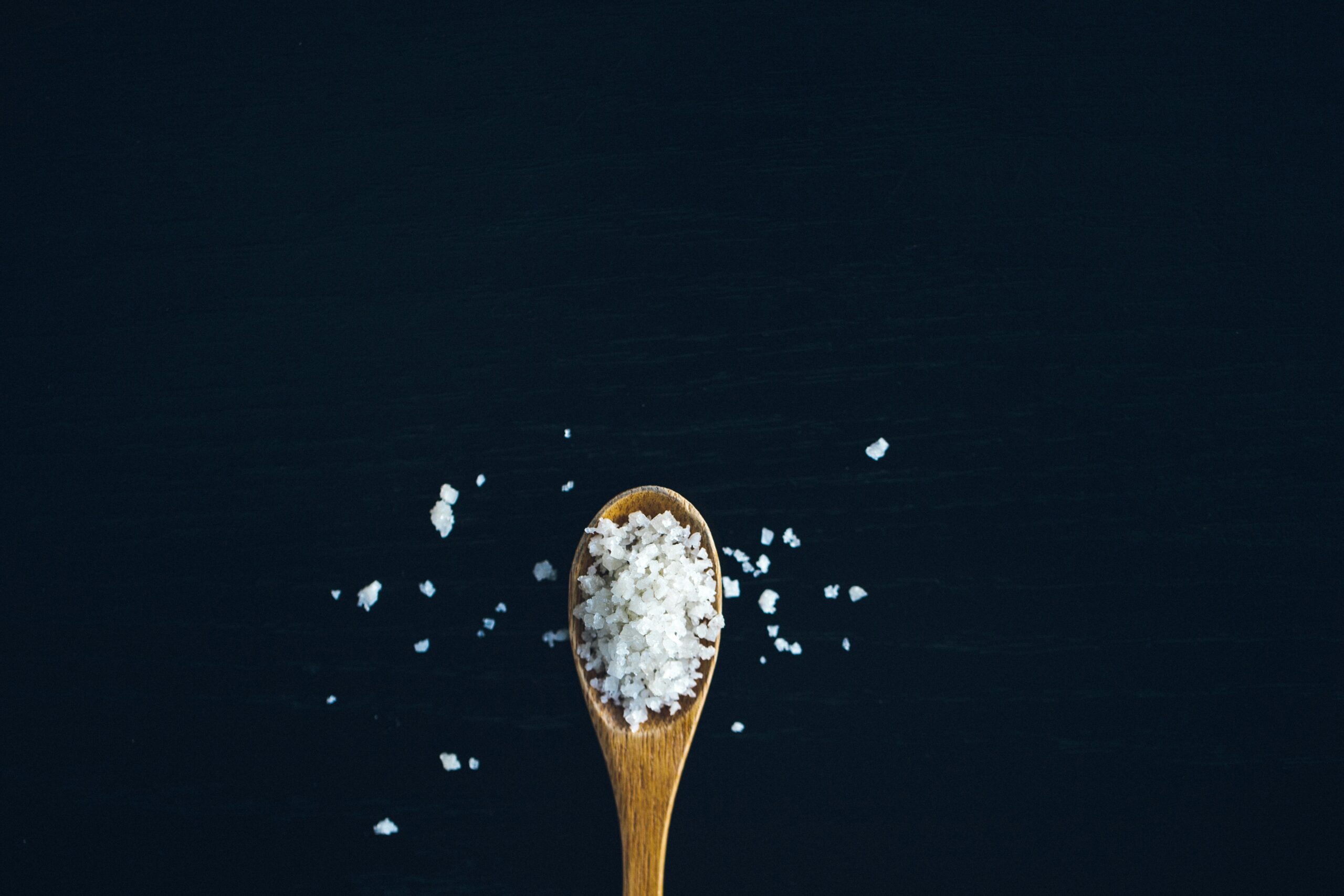
It may surprise many, but the most popular spice, salt, also helps with a sore throat. When you feel like you have a sore throat or hoarseness, salt treatments will help. Researchers have proven that salt supplies our body with sodium and chlorine, which is necessary for cells' proper functioning and water distribution in tissues. Salt can effectively support the healing process, as when used to gargle, it has an antiseptic and antibacterial effect and reduces sore throat.
A saline![]() solution can relieve burning and accelerate the healing of irritated mucous membranes. Salt gargling can easily be performed at home. Saltwater for gargling can help fight the infection or stop its development in the early stages of the disease. All you need is lukewarm water, boiled water, and the table salt you use when cooking. You can pick traditional or unique salt purchased at a pharmacy or medical store.
solution can relieve burning and accelerate the healing of irritated mucous membranes. Salt gargling can easily be performed at home. Saltwater for gargling can help fight the infection or stop its development in the early stages of the disease. All you need is lukewarm water, boiled water, and the table salt you use when cooking. You can pick traditional or unique salt purchased at a pharmacy or medical store.
Contraindications: Rinsing the throat will help relieve the pain and is completely safe for pregnancy.
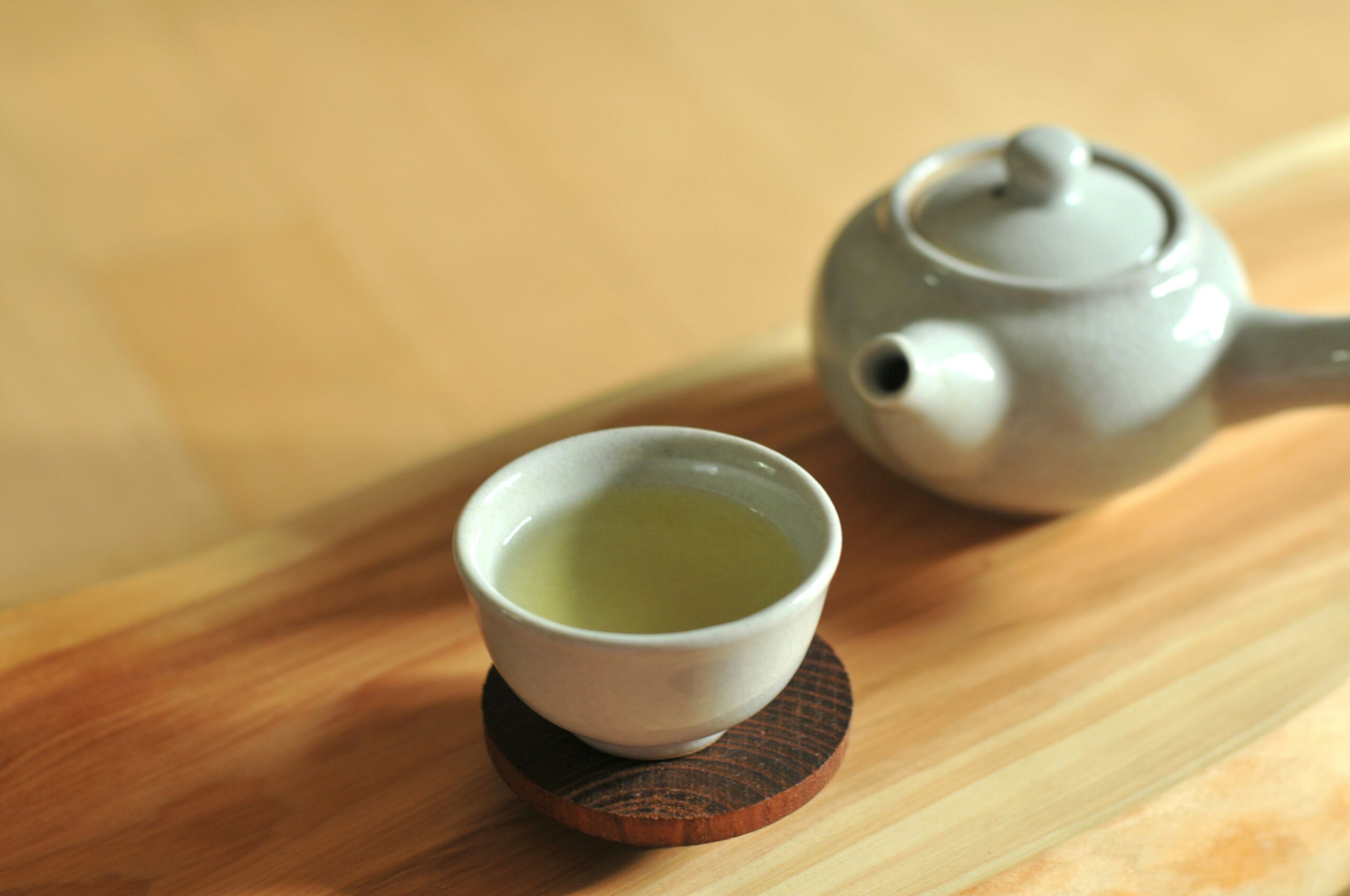
Frequent hydration is recommended for sore throats. A good choice then is green tea. For people suffering from inflammation and sore throats, green tea is an excellent choice. Green tea contains catechins, compounds to which it owes its anti-inflammatory and antibacterial properties. It makes it great for healing and disinfecting the throat and making a sore throat pass faster. Of the green teas, matcha is the most healthy choice. It contains the most antioxidants of all teas, which help maintain immunity and fight inflammation.
In addition to it, rooibos tea is also worth drinking. It is also one of the sore throat remedies. It has an anti-inflammatory and moisturizing effect on the mucous membrane. It does not contain caffeine, so children can also drink it. The best tea for a sore throat will be one that you drink with pleasure. Most teas and herbal infusions have anti-inflammatory and antibacterial effects.
Contraindications: Drinking it in large quantities is not recommended for pregnant and breastfeeding women and children. But there are no contraindications to drinking rooibos tea during pregnancy and breastfeeding.
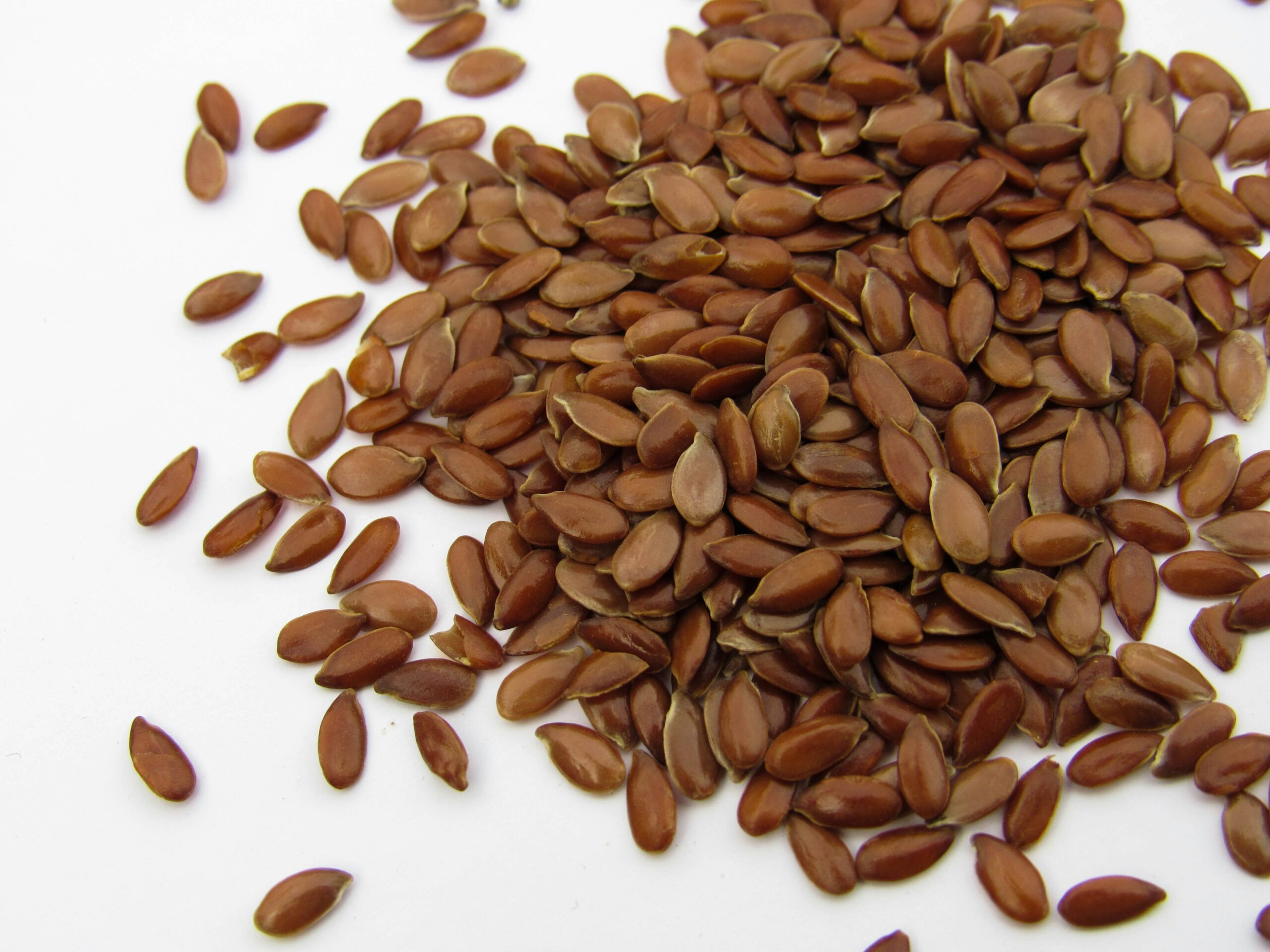
Flaxseed is a crop that exhibits many health-promoting properties. Its medicinal properties are used for many ailments, including sore throat. An infusion of the plant reduces pain, relieves the feeling of scratching and burning in the throat, and helps fight infection. Among other things, flaxseed contains amino acids, vitamins and dietary fibre![]() , which meets the needs of human diet and health.
, which meets the needs of human diet and health.
What's more, flaxseed has strong moisturizing properties. In this sense, the mucus secreted by the plant covers the walls of the throat with a protective thin layer of mucus, which reduces the action of pathogenic microorganisms and relieves the symptoms of scratching in the throat.
Contraindications: An infusion of linseed to a sore throat accompanied by pain is considered safe. Pregnant women also need not worry about the risks of consuming flaxseed infusions. In addition, flaxseed is used internally to treat constipation, gastritis, and intestinal disorders and relieve the symptoms of stomach and duodenal ulcers.
Sore throat remedies also include ways to avoid worsening symptoms. If you have a sore throat, watch out for certain products that can further irritate the throat mucosa. These include, among others:
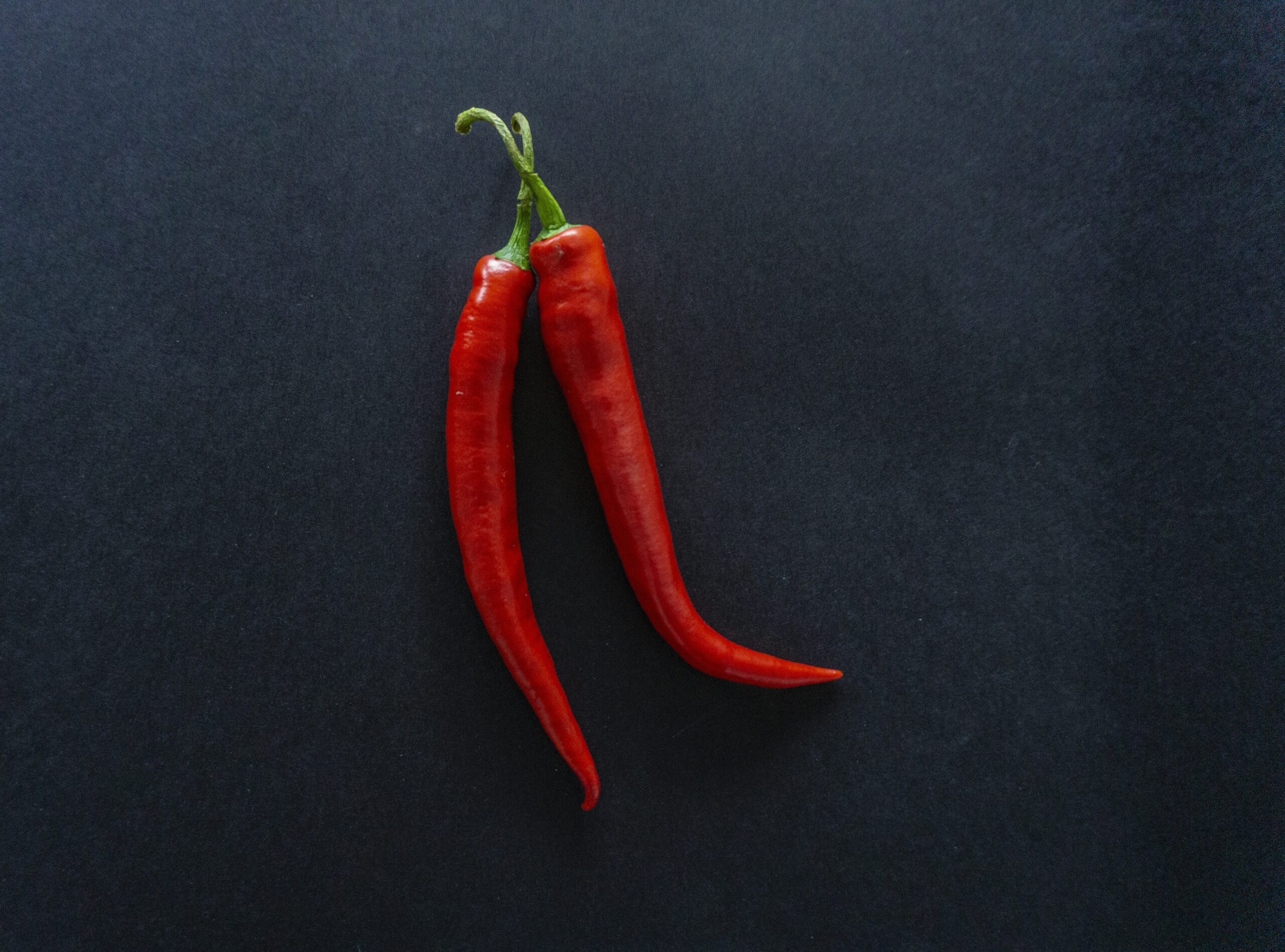
When experiencing a sore throat, it is better to avoid spicy foods that can aggravate the condition of the throat. Pungent, aromatic spices such as chili and curry irritate the inflamed throat. In addition, acidic foods such as citrus can irritate the throat. Food should also be easy enough, as it too can increase irritation. Opt for soft, cooked food or smoothies.
During infections, before anything else, avoid alcohol. Unfortunately, many people are convinced that alcohol clears the throat. In reality, it is a misconception. Alcohol further dehydrates the tissues and exacerbates throat inflammation. In addition, alcohol weakens the body's immune system. So, it increases the risk of adverse health effects.
Tobacco smoke has an irritating effect on the throat and is often the leading cause of sore throat occurring. During a sore throat, do not smoke cigarettes and avoid tobacco smoke. Cigarettes further irritate and dry out the throat. Also, smoking compromises the balance of the immune system.
Sore throat remedies can be helpful in mild illnesses or the early stages of infection. However, it is essential to remember that there may sometimes be more than a sufficient treatment method. Treatment depends on the cause of the throat pain, especially a chronic or very severe one, can be a symptom of serious diseases.
Therefore, do not delay a visit to the doctor for chronic pain or the sudden onset of severe pain without signs of infection or accompanied by disturbing symptoms, such as difficulty swallowing or bleeding. Unilateral pain, at first of constant intensity, increasing over time, and annoying during swallowing can be a sign of cancer, so such pain should not be ignored.
Consequently, if the sore throat does not go away after treatment or continues to increase, or if alarming symptoms accompany it, you should immediately go to the doctor.
Sore throats and pain symptoms can be caused by many things. Most often, it is bacterial and viral infections. As a result, there may be symptoms such as a burning throat, stinging in the throat, and difficulty swallowing. There may also be redness of the throat, swelling, and an unpleasant feeling of scratching, plus coughing increases irritation of the mucous membrane.
What can be used for an irritated, sore, and sick throat? Supportively, sore throat remedies can be used. Many herbal infusions can provide pain relief and have additional anti-inflammatory properties. Various products such as garlic or honey will also help you support your immune system. Salt rinses and the moisturizing effects of flaxseed are also surprising ways. It is worth trying sore throat remedies.
However, be aware that there are contraindications to some products. For example, pregnant women should take particular caution. Sore throat remedies may also not be sufficient in more severe conditions. Therefore, you should visit a doctor if the sore throat does not go away.